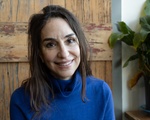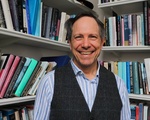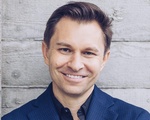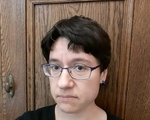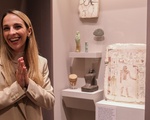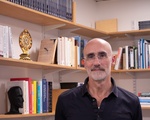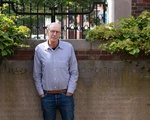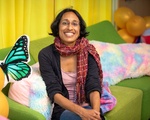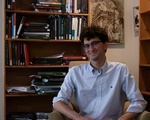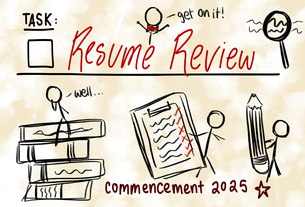Fifteen Questions
Fifteen Questions: Christina Maranci on Medieval Armenian Churches, Crumbling Grandeur, and the Best Kardashian
The Armenian Studies professor sat down with Fifteen Minutes to discuss Armenian art history, architectural palimpsests, and the necessity of coffee in the ghost city of Ani.
Fifteen Questions: Daniel L. Smail on Deep History, Lateral Learning, and Bike Lanes
The Professor of History sat down with Fifteen Minutes to discuss 19th century forgeries, his new book, and why he considers himself a "non-traditional historian."
Fifteen Questions: David Sinclair on Age Reversal, Exercise, and Immortal Yeast Cells
The Professor of Genetics sat down with Fifteen Minutes to discuss anti-aging research, the wellness industry, and his grandmother.
Fifteen Questions: Anna Wilson on Fanfiction, Medieval Literature, and Interdisciplinarity
The Assistant Professor of English sat down with Fifteen Minutes to discuss "The Book of Margery Kempe," coffee shops AUs, and the gender politics of fanfiction.
Fifteen Questions: Reginald Dwayne Betts on Vulnerability, Collective Memory, and Freedom Reads
The visiting professor of English sat down with Fifteen Minutes to discuss poetry, prison literature, and collective memory.
Fifteen Questions: Theda Skocpol on The Election, The Ivory Tower, and The New England Patriots
The sociologist sat down with FM to discuss U.S. authoritarianism, campus protest, and her favorite football team.
Fifteen Questions: Gaia Bencini on Egyptology, Hieroglyphics, and ‘Dreaming the Sphinx’
The Egyptology PhD candidate sat down with FM to discuss Ancient Egyptian artifacts, translating hieroglyphs, and misconceptions about the ancient Near East.
Fifteen Questions: Arthur Brooks on Barcelona, Baldness, and the Science of Happiness
The HBS professor and happiness columnist say down with FM to discuss his time as a professional french horn player, his conversion to Catholicism, and escaping workaholism.
Michael Pollan 15Q portrait
Michael K. Pollan is a Lewis K. Chan Arts Lecturer and Professor of the Practice Non-Fiction. He teaches science journalism and has written books about food, plants, and psychedelics.
Fifteen Questions: Michael Pollan on Psychedelics, Consciousness, and Journalism
The English professor and science journalist Michael Pollan sat down with Fifteen Minutes to talk about his research on food, psychedelics, and consciousness.
Fifteen Questions: Finale Doshi-Velez on AI Decision Making, Novel Writing and Unicorns
Computer Science Professor Finale Doshi-Velez sat down with Fifteen Minutes to talk about artificial intelligence in healthcare decision making, the dangers of “boring AI,” and writing what may be her first novel.



